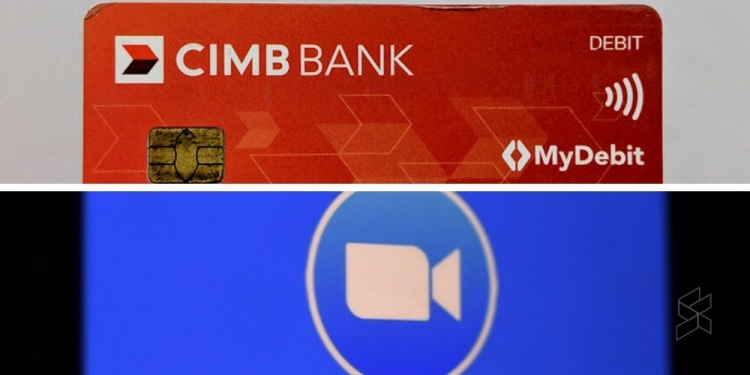CIMB posted a statement that denies any suspicious activity on its platforms after a viral WhatsApp message claims the Zoom, a video teleconferencing application, is to blame for the recent ‘direct debit’ issue that has affected customers. They also want to reassure customers that there have been no “untoward or suspicious activities” on any of their platforms.
“The safety of our customers’ funds and online banking transactions is strictly prioritised at all times to ensure all banking transactions remain safe for customers,” stated CIMB in their press statement.
CIMB claimed that the ‘direct debit‘ transactions, that were probed by the Malaysia Cyber Consumer Association (MCCA), are legitimate purchases made by customers for online services.
Reportedly, there had been tweets by users who have reached out to CIMB online after received a WhatsApp message claiming that Zoom is one of the apps that hackers are using to steal personal information like passwords and get access to banking details. The message also urged users to uninstall Zoom.
Zoom has had problem after problem, with reports to do with several privacy and security concerns. It is reported that cyber criminals have made fake “Zoom” apps and websites to trick users into downloading malwares on their devices. Zoom denied that its application is the cause for the ‘direct debit’ issue faced by some CIMB customers.
“Zoom would like to maintain that the application has no connection to claims that malware attack may have caused automatic debit to be launched and the matter has also been clarified by the bank,” they said.
The viral WhatsApp message has also been disputed by Sebenarnya.my, an information portal by the Malaysian Communications and Multimedia Commission (MCMC) to debunk fake news.
Tiada Aktiviti Yang Mencurigakan Di Platform CIMB Berkenaan Zoom https://t.co/cxPeGCF40P pic.twitter.com/JhZkKlECFq
— sebenarnya.my (@sebenarnyaMY) April 9, 2020








